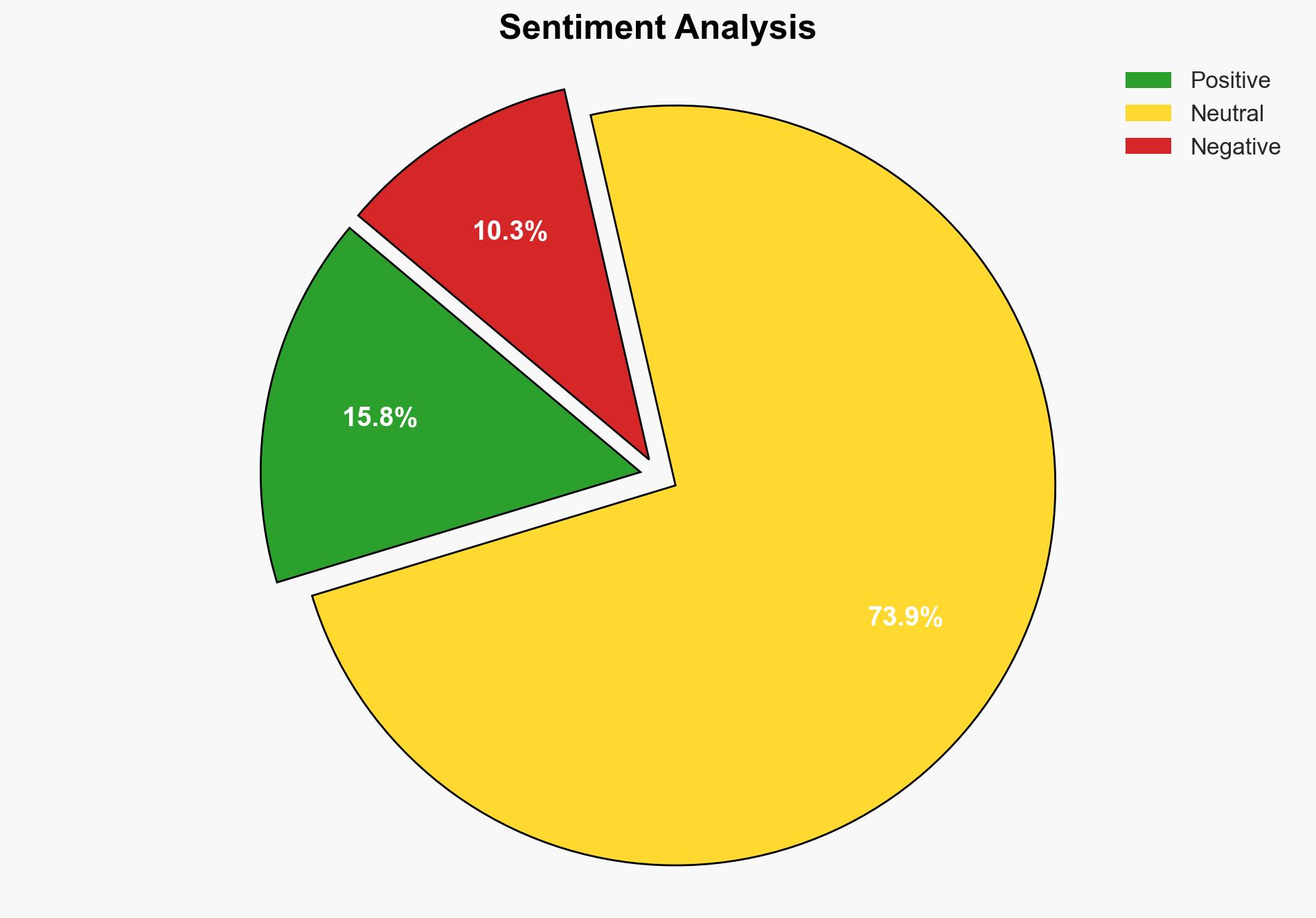PKK ceasefire declaration What it means for Turkey Syria and the Kurds – The Jerusalem Post
Published on: 2025-03-08
Intelligence Report: PKK Ceasefire Declaration – Implications for Turkey, Syria, and the Kurds
1. BLUF (Bottom Line Up Front)
The recent ceasefire declaration by the PKK, following the statement by Abdullah Ocalan, signifies a potential shift in the long-standing conflict between the PKK and Turkey. This development could lead to renewed diplomatic efforts, although significant challenges remain due to historical tensions and regional complexities. The ceasefire’s impact on Syria and the broader Kurdish region requires careful monitoring, as it may influence regional stability and security dynamics.
2. Detailed Analysis
The following structured analytic techniques have been applied for this analysis:
SWOT Analysis
Strengths: The ceasefire offers an opportunity for peace talks and reduced violence in Turkey’s southeast.
Weaknesses: Historical distrust between the parties may hinder progress in negotiations.
Opportunities: Potential for enhanced regional cooperation and economic development if peace is sustained.
Threats: Risk of renewed conflict if diplomatic efforts fail or external actors disrupt the process.
Cross-Impact Matrix
The ceasefire in Turkey may influence the situation in Syria, particularly in areas controlled by the Syrian Democratic Forces (SDF). The PKK’s decision could affect Turkey’s military strategy and its relations with Kurdish groups in Syria.
Scenario Generation
Best-Case Scenario: The ceasefire leads to a comprehensive peace agreement, fostering regional stability and economic growth.
Worst-Case Scenario: Breakdown of talks results in intensified conflict, destabilizing the region further.
Most Likely Scenario: A prolonged ceasefire with intermittent negotiations, maintaining a fragile peace.
3. Implications and Strategic Risks
The ceasefire presents both opportunities and risks. A successful peace process could stabilize Turkey’s southeast and improve relations with Kurdish groups. However, failure to address underlying issues may lead to renewed violence, impacting regional security and economic interests. The situation in Syria remains volatile, with potential for spillover effects.
4. Recommendations and Outlook
Recommendations:
- Encourage diplomatic engagement between Turkey and Kurdish representatives to sustain the ceasefire.
- Support initiatives that promote economic development in conflict-affected areas.
- Enhance intelligence sharing and cooperation with regional partners to monitor potential threats.
Outlook:
Best-Case: A durable peace agreement is reached, leading to regional stability and economic growth.
Worst-Case: The ceasefire collapses, resulting in renewed conflict and regional instability.
Most Likely: The ceasefire holds with intermittent negotiations, maintaining a fragile peace.
5. Key Individuals and Entities
The report mentions significant individuals such as Abdullah Ocalan and Mazloum Abdi. Key entities include the PKK, Turkish government, and the Syrian Democratic Forces (SDF).




